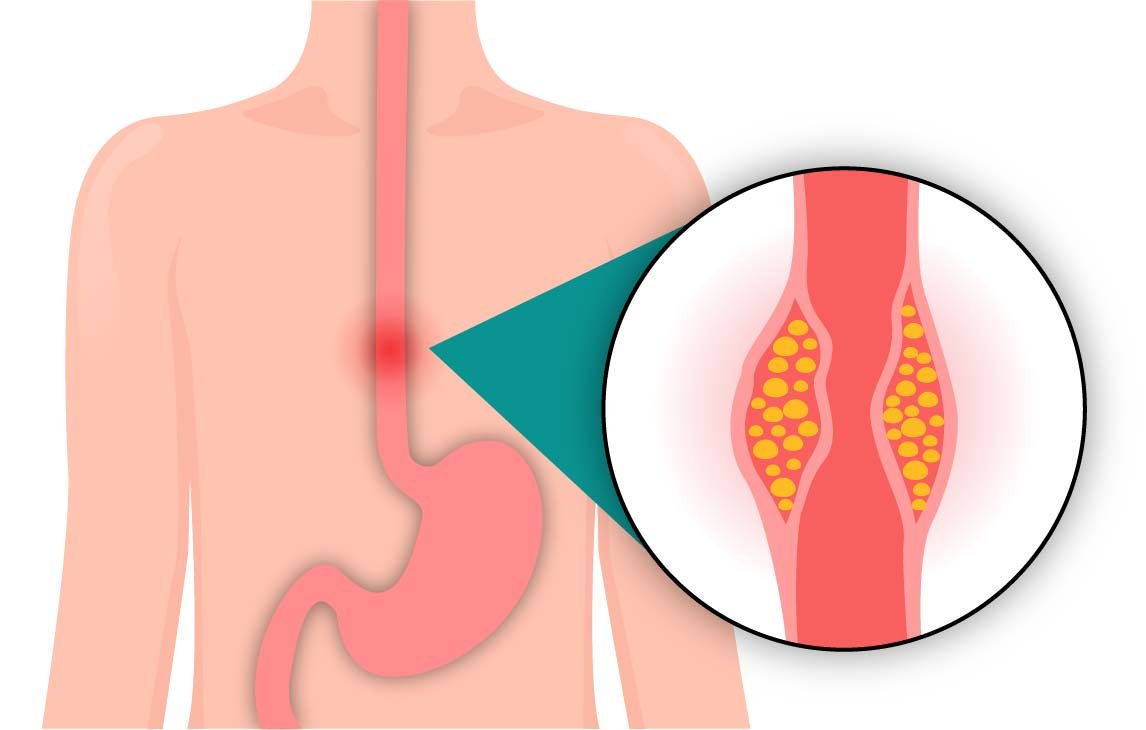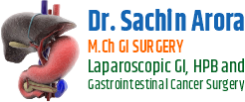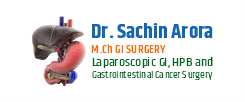
Treatment for esophageal conditions varies widely depending on the specific condition. Here are common esophageal conditions and their respective treatments:
1. Gastroesophageal Reflux Disease (GERD)
Symptoms:
- Heartburn
- Acid regurgitation
- Difficulty swallowing (dysphagia)
Treatment:
- Lifestyle Changes: Diet modifications, weight loss, avoiding lying down after meals, elevating the head of the bed.
- Medications:
- Antacids: For immediate symptom relief.
- H2 Receptor Blockers: Ranitidine, famotidine.
- Proton Pump Inhibitors (PPIs): Omeprazole, esomeprazole, lansoprazole.
- Surgery:
- Nissen Fundoplication: Wrapping the top of the stomach around the lower esophagus to prevent reflux.
- LINX Device: A ring of magnetic beads is placed around the junction of the stomach and esophagus.
2. Esophageal Cancer
Symptoms:
- Difficulty swallowing
- Weight loss
- Chest pain
- Chronic cough
Treatment:
- Surgery: Esophagectomy (removal of part or all of the esophagus).
- Radiation Therapy: Often combined with chemotherapy before or after surgery.
- Chemotherapy: Systemic treatment to kill cancer cells.
- Targeted Therapy: Drugs targeting specific cancer cell properties.
- Endoscopic Procedures:
- Endoscopic Mucosal Resection (EMR): Removing superficial cancer.
- Endoscopic Submucosal Dissection (ESD): For deeper lesions.
3. Achalasia
Symptoms:
- Difficulty swallowing
- Regurgitation of undigested food
- Chest pain
- Weight loss
Treatment:
- Medications: Nitrates or calcium channel blockers to relax the lower esophageal sphincter (LES).
- Botulinum Toxin Injection: Injection into the LES to relax it.
- Balloon Dilation: Endoscopic procedure to widen the LES.
- Heller Myotomy: Surgical procedure to cut the muscles at the LES.
- Peroral Endoscopic Myotomy (POEM): Minimally invasive endoscopic surgery to cut the LES muscles.
4. Esophageal Strictures
Symptoms:
- Difficulty swallowing
- Painful swallowing
- Food impaction
Treatment:
- Dilation: Stretching the narrowed area using endoscopy.
- Medications: PPIs if GERD is the underlying cause.
- Surgery: In severe cases, to remove the stricture.
- Stenting: Placement of a stent to keep the esophagus open.
5. Esophageal Varices
Symptoms:
- Vomiting blood
- Black, tarry stools
- Lightheadedness
Treatment:
- Endoscopic Band Ligation: Tying off bleeding varices.
- Medications: Beta-blockers to reduce portal pressure.
- Transjugular Intrahepatic Portosystemic Shunt (TIPS): Creating a new pathway for blood flow.
- Sclerotherapy: Injecting a solution into varices to stop bleeding.
6. Eosinophilic Esophagitis (EoE)
Symptoms:
- Difficulty swallowing
- Food impaction
- Chest pain
Treatment:
- Dietary Management: Elimination diets to identify and avoid triggers.
- Medications:
- Topical corticosteroids (swallowed fluticasone or budesonide).
- PPIs to reduce acid production.
- Dilation: If strictures develop.
7. Barrett’s Esophagus
Symptoms:
- Often asymptomatic but associated with chronic GERD.
Treatment:
- Surveillance: Regular endoscopies to monitor changes.
- Medications: PPIs to control acid reflux.
- Endoscopic Therapy:
- Radiofrequency Ablation (RFA): To remove dysplastic cells.
- Endoscopic Mucosal Resection (EMR): To remove abnormal tissue.
- Surgery: Esophagectomy in severe dysplasia or early cancer.
Conclusion
Esophageal conditions require a range of treatments from lifestyle changes and medications to surgical interventions. Early diagnosis and appropriate treatment are crucial for managing symptoms and preventing complications. Consulting with a gastroenterologist or relevant specialist is essential for tailored treatment and care.
Here Are
Esophagus Treatment F&Q's
GERD (Gastroesophageal Reflux Disease) is a chronic condition where stomach acid flows back into the esophagus, causing heartburn and other symptoms. Treatments include lifestyle changes (diet modifications, weight loss), medications (antacids, H2 blockers, proton pump inhibitors), and in severe cases, surgery (Nissen fundoplication or LINX device).
Symptoms of esophageal cancer include difficulty swallowing (dysphagia), weight loss, chest pain, chronic cough, and regurgitation. Early detection is crucial for effective treatment.
Treatment options for esophageal cancer include surgery (esophagectomy), radiation therapy, chemotherapy, targeted therapy, and endoscopic procedures (such as endoscopic mucosal resection or endoscopic submucosal dissection).
Achalasia is a rare disorder where the lower esophageal sphincter (LES) fails to relax, causing difficulty swallowing. Treatments include medications (nitrates, calcium channel blockers), botulinum toxin injections, balloon dilation, Heller myotomy, and peroral endoscopic myotomy (POEM).
Esophageal strictures are caused by chronic acid reflux, radiation therapy, or ingestion of caustic substances. Treatments include endoscopic dilation, medications (PPIs for underlying GERD), surgery, and stent placement in severe cases.
Esophageal varices are enlarged veins in the esophagus, usually due to portal hypertension from liver cirrhosis. Management includes endoscopic band ligation, medications (beta-blockers), TIPS (transjugular intrahepatic portosystemic shunt), and sclerotherapy to stop bleeding.







